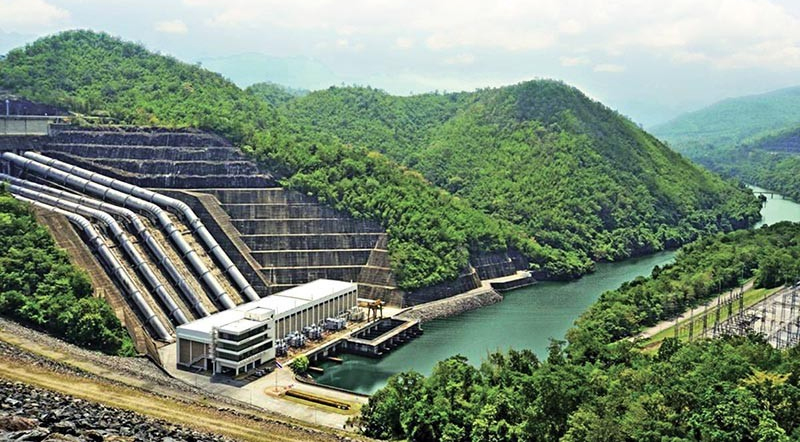 The Nepal Weekly
The Nepal Weekly  May 5, 2024
May 5, 2024
The energy development target set by Nepal Government will need 61 trillion rupees for the project development period completing 12 years to come. The speakers participating in the workshop on ‘Green Energy Projects as a Pathway to Prosperity’ said.
The technical session of the Himalayan Hydro Expo 2024 discussed the power generation targets and potential investment situations. The speakers of that session said that only a maximum of 20 billion can be invested in the energy sector by internal resources. The discussion on how to raise the remaining investment shifted to the centre stage.
Presenting the working document, the former Chief Executive Officer of Nepal Infrastructure Bank (NIFRA) Ramkrishna Khatiwada said that so far four billion rupees have been invested in the energy sector in the country and an additional investment of Rs. 61 trillion rupees will be needed.
“In order to provide this investment, a maximum of 19 trillion 38 billion can be invested from within the country, but foreign investment and financial instruments will have to be used to bring the remaining investment,” he said. Recently, Indian investors have focused on Nepal because international financial institutions feel comfortable when Indian investors seek to develop projects in Nepal.’
Arjun Gautam, Chief Executive Officer of Hydro Electricity Investment and Development Company, while presenting the working paper, informed that by the year 2030, about 50 trillion investments should be made.
He says that although the banking system currently has a capital of 61 billion, there is no possibility of large investment in the energy sector. “Because banks accept short-term savings, long-term investment in hydropower is not an option,” he said.
He mentioned that there is a possibility that a maximum of 20 billion can be raised for investment from within the country within the specified period. Apart from that, there are non-resident Nepali and foreign investments in the areas where investment can be brought. Gautam said that the government should make the goal of electricity production a common goal as a prerequisite for increasing investment in hydropower, regulation and governance reform, clarity in the energy mix, comfortable environment and clear investment plans.
He mentioned that there is a, possibility that a maximum of 20 billion can be raised for investment from within the country within the specified period. Apart from that, there are non-resident Nepali and foreign investments in the areas where investment can be brought. Gautam said that the government should make the goal of electricity production a common goal as a prerequisite for increasing investment in hydropower, regulation and governance reform, clarity in the energy mix, comfortable environment and clear investment plans.
Sushil Pokharel, vice president of International Hydro Association, said that policy, procedural and environmental issues are important to bring foreign investment. “In order to attract foreign investors, the services offered for investment should be attractive,” he said.
Sushil Bhatt, Chief Executive Officer of Investment Board Nepal, said that the presence of hydropower projects in the upcoming investment conference is numerically high and has been given high priority.
There will be discussions in the conference to advance reservoir and semi-reservoir projects. Executive Director Bhatt informed that the stability of the Investment Board is essential to facilitate the investors and the way will be opened for the appointment of permanent employees.
International Finance Corporation (IFC) representative Bhishma Pandit said that both the government and the private sector are focusing on power generation. He says that it cannot bring foreign investment. “Investment can come only if infrastructure such as transmission line, distribution system, market and other comfortable environment are in place,” he said.
According to the Pandit, policy reforms and amendments are essential for this. He believes that opening up the private sector in transmission lines and electricity business will facilitate investment. He said that clarity is needed on which project will be built by the government, which will be built by the private sector and which will be built with foreign investment.
President of Nepal Bankers Association Sunil KC said that there is a lack of investment in the energy sector and that resource cannot be fulfilled only through the banking system. “There is no option but to find an alternative way to bring in the necessary investment,” he said. Interest rates and other topics will determine the topic of investment using financial instruments from outside. Also, Chairman KC says that after the ‘Country Rating’ is done, there will be certainty for investment.